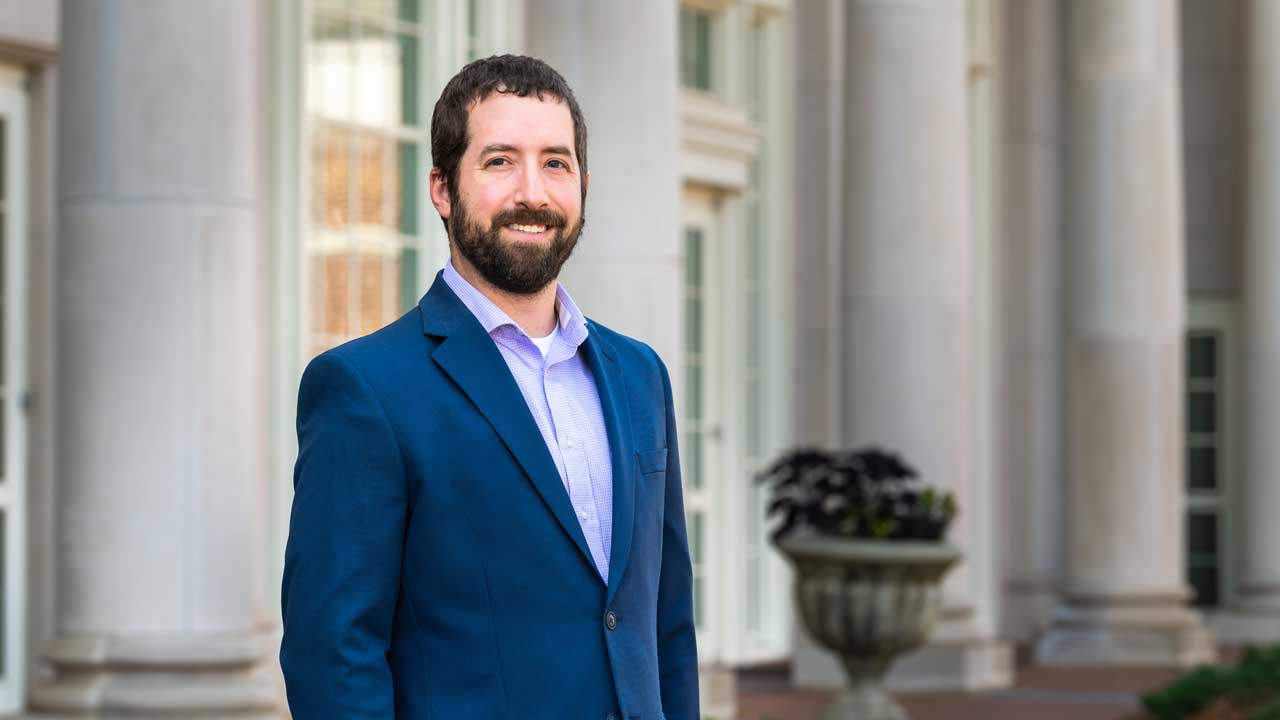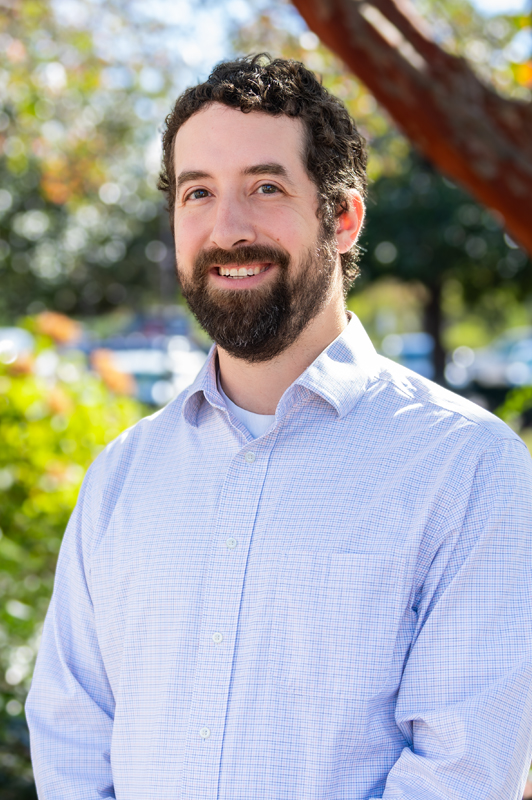Chemical engineering professor collaborates on $6M NSF biosensor project
Published: Mar 2, 2022 2:15 PM
By Cassie Montgomery
Biomanufacturing, or the production of biomaterials, is an emerging economic sector with significant growth potential in states like Alabama, Maine, New Hampshire and Wyoming. Research underway in Auburn University’s Department of Chemical Engineering is poised to help these states realize that potential.
As part of a recently awarded National Science Foundation EPSCoR grant, assistant chemical engineering professor Robert Pantazes will participate on an interdisciplinary research team to develop sensors to promote quality control in the biomanufacturing sector. The four-year, nearly $6 million project – approximately $550,000 of which is designated to Auburn – combines Pantazes’s efforts with those of Jeffrey Halpern at the University of New Hampshire, Eva Rose Balog at the University of New England, Caleb Hill at the University of Wyoming and Andrew Crawley at the University of Maine to develop the biosensors and integrate a workforce development program to train a new biotechnology workforce in these jurisdictions.
“Biomanufacturing happens at many scales. We’re focusing here on making molecules that have different uses – those might be therapeutics, those might be materials, they might be food additives,” Pantazes said. “It’s using biology to make things are of use to society.”
Monitoring biomanufacturing processes is difficult to achieve in real time and typically requires measurements to be taken off-line from the process. The sensors developed by the research team will allow for continuous monitoring in the biomanufacturing process.
“There is a widespread belief that the fourth Industrial Revolution is happening right now and it’s related to continuous monitoring of processes,” Pantazes said. “It’s knowing exactly what’s happening throughout your entire manufacturing process so that whenever an issue comes up, you can adapt to it in real time and keep the manufacturing process going as smoothly as possible as opposed to potentially shutting down an entire manufacturing line when there’s an issue at one station.”
The research will be divided into four parts across the participating universities. At Auburn, Pantazes will lead the development and validation of computational methods to design protein recognition elements with targeted hotspot interactions. Simultaneously, researchers at the other universities will be developing separate sensor elements. The project’s lead researcher at the University of New Hampshire will combine the results of the four projects into a single sensor device capable of measuring changes in protein levels continuously and in real time for industrial applications.
“A significant part of this project, literally half of the grant proposal, is on workforce development and how do we build a network that essentially develops a future workforce in the biomanufacturing space,” Pantazes said.
The research team aims to develop a new biotechnology workforce through outreach to pre-college students, internships and programs for undergraduate researchers and graduate students, and industry collaboration in the states where the four participating universities are located – Alabama, Maine, New Hampshire and Wyoming. This workforce development component will prepare these four states to take full advantage of the anticipated growth in biotechnology and advanced manufacturing industries.
Media Contact: , cmontgomery@auburn.edu, 334.844.3668


